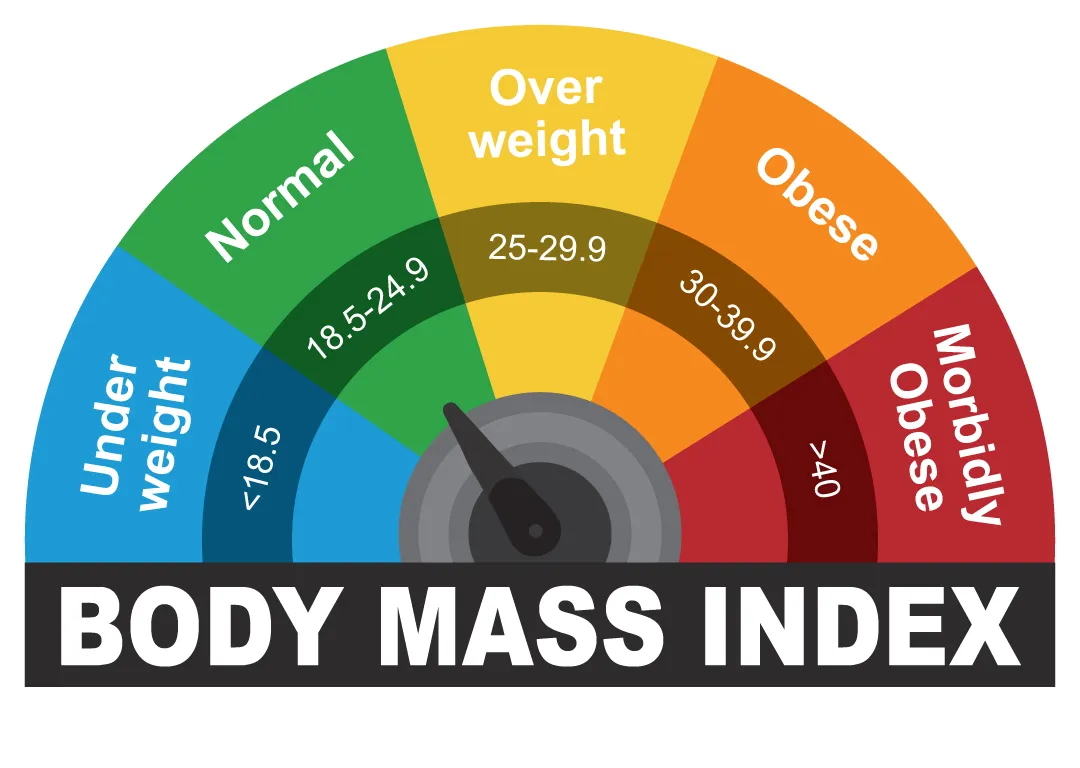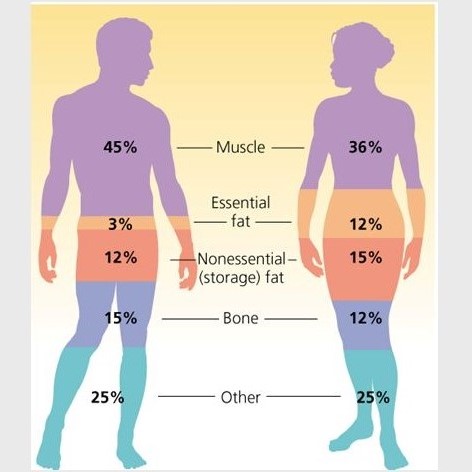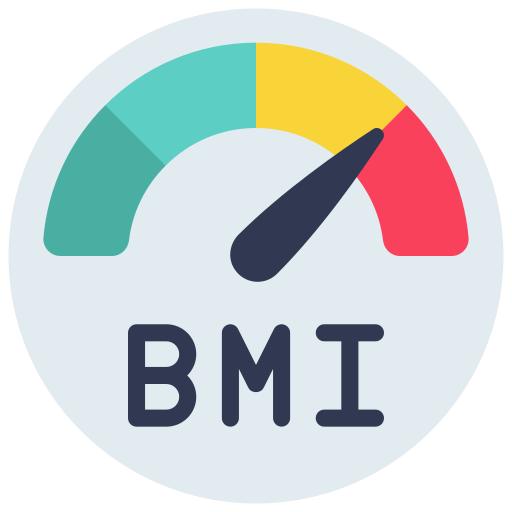| Adult BMI Calculator |
Set units:
Your weight:
Your height:
Body Fat Calculator |
BMI Chart Check out BMI for Children |
How Important is BMI in Daily life?
Many a times, we come across the term body mass index or its abbreviation BMI in our daily life. Every health blog we read or YouTube fitness video that we watch has some reference to body mass index (BMI). As anyone else would do, I googled about it and came across a ton of articles related to body mass index. The information flooding is so huge that some times we get misled with the articles. That’s when I thought of writing down my understandings about body mass index and how to attain a healthy BMI. Here I would like to share it with all, so that everyone can make use of the information and lead a healthy life.
This Body Mass Index helps an individual to access their Body weight according to his/her height. If the value comes not under Normal category, they can work out to achieve it by several ways. They can follow proper diets, do regular exercises, Quality & enough sleep, Stress Management. This built their confidence level! You can click here to see how many steps one should walk based on ther BMI values.
Maintaining a healthy weight is essential for overall health and well-being. It can reduce your risk of chronic diseases such as heart disease, stroke, type 2 diabetes, and some types of cancer. Remember, weight management is a journey, not a quick fix. It takes time, effort, and consistency to achieve and maintain a healthy weight. Don’t be discouraged by setbacks. Just keep moving forward and celebrate your progress along the way.
Also checkout here in detail for the proper diet !!!
What is BMI? BMI is a numerical value derived from an individual’s weight and height. Body Mass Index or BMI is a widely used measurement in the realm of health and fitness. It provides a quick and effective way to assess an individual’s weight relative to their height.
How is it calculated? Body Mass Index (BMI) is calculated using a simple formula. Weight in kilograms divided by the square of height in meters. (BMI = weight (kg) / height^2 (m^2)). The resulting number is categorized into different ranges. The range value indicates whether the individual falls into an underweight, normal weight, overweight, or obese category.
For example, if your weight is 65kg and are 1.63m tall, you work out your BMI by: squaring your height: 1.63×1.63 = 2.66. dividing 65 (your weight) by 2.66 = 24.5, which comes under “Normal weight” category.
BMI Categories- Adult:
The World Health Organization’s (WHO) classify BMI for Adult in the following ranges:
| Category | BMI |
| Underweight | below 18.5 |
| Normal weight | between 18.5 and 24.9 |
| Overweight | between 25.0 and 29.9 |
| Obese | above 30.0 |
| Obese Class 1 | between 30.0 and 34.9 |
| Obese Class 2 | between 35.0 and 39.9 |
| Obese Class 3 | above 40.0 |
Check BMI categories of Children
How many steps/walk based on your BMI?
Imagine your body is like a house, and fat is like extra furniture. The more steps you take, the more you’re moving around your house and burning off that extra furniture. Walking is like doing some chores around the house – it’s easy and simple, but it helps keep your house clean and tidy.
Scientists have studied how many steps you need to take to keep your body healthy. They found that if you take more steps, you’ll have less extra furniture in your house (less fat on your body). Here’s a quick guide:
- If your house is a bit cluttered (BMI above 24.9), you should aim for at least 15,000 steps a day.
- If your house is mostly tidy (BMI between 18.5 and 24.9), 10,000 steps a day should keep things clean.
Remember, walking is like doing chores – it’s not always fun, but it’s good for you. So, try to get moving and keep your body happy and healthy! We are always in a thrive to get the best for ourselves.

- Underweight- BMI below 18.5 : 4,400 – 7,500 steps per day or 2.5 miles to 3.5 miles.
- Normal weight- BMI between 18.5 and 24.9: 10,000 steps, 5 miles, or 90 minutes of walking per day.
- Overweight- BMI between 25.0 and 29.9: 10,000 steps, 5 miles, or 90 minutes of walking per day.
- Obese- BMI 30.0 and above: Start every other day for 20 minutes. Build upto 60 minutes every day.
Measure your Body Fat !
Are you curious to see how much is your body fat percentage? Checkout here for Body Fat Calculator.
Let’s talk about body composition today. When it comes to assessing body composition and overall health, two commonly discussed measurements are Body Mass Index (BMI) and body fat percentage. Body composition, which refers to the relative amounts of muscle, bone, and fat mass in the body, is a crucial indicator of overall health and well-being. While Body Mass Index (BMI) is a widely used metric, it has limitations, as it does not distinguish between muscle and fat mass, leading to inaccurate assessments of overall health.
Both BMI and body fat percentage offer valuable information about an individual’s health, but they provide different insights. BMI is a useful tool for population-level assessments and quick estimates of weight status. It can help identify potential health risks associated with weight, but it does not provide a comprehensive evaluation of body composition.

Body fat percentage, on the other hand, provides a more accurate assessment of body composition and the proportion of fat in the body. It helps differentiate between fat mass and fat-free mass, offering insights into the distribution of body fat and associated health risks.
Drinking water MATTERS!
Doesn’t matter whether it is Summer or Winter… One should drink their required water everyday. Our bodies are about 60% water. It’s essential for various bodily functions, so staying hydrated is pretty important! Swap sugary drinks like soda and juice for water or unsweetened tea.
